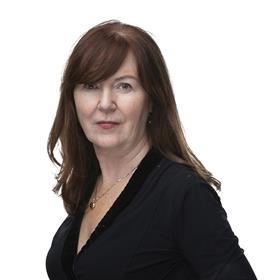Corporate culture was once defined by McKinsey & Company managing director Marvin Bower as “the way we do things around here”. For many firms, the ‘here’ changed dramatically when the UK went into lockdown in March. Suddenly, people used to working in an office found themselves sitting at home with a laptop discovering Zoom.

Many businesses are now considering introducing remote working more permanently. It is a hotly debated topic, but for us it is nothing new. We have operated as a remote-working team for the past 15 years.
At the time, it was a step into the unknown for us and the people who joined us. It is interesting now to look at businesses facing the same challenges. Take it from one who knows: change will not happen overnight and great thought must be given to it.
Remote working was a relatively new concept at the time, particularly for professional services. Any initial concerns I might have had about people working from home unsupervised were quickly banished, as it was clear this was not a problem. Our lawyers had a professional responsibility to do the work and do it well. If they did not, they would not get any work. It was as simple as that.
Quality control
That is not to say that we did not work extremely hard to ensure the necessary checks and balances were in place to monitor people and guarantee client satisfaction. From the outset, our starting point was: how do we delight the clients that we want to serve? From there it was a series of logical but well-planned steps to decide which lawyers we wanted to engage, how to get the best out of them and how to control quality.

For any business operating remotely it is important to create a culture in which everyone is accountable for their own work and outputs are easily measurable and transparent, with a clear understanding of expectations on both sides.
All our lawyers are engaged on contracts for services, rather than employment contracts. This is something we have adopted as we transitioned to remote working over the years and it has been a success. We have a very flat structure with no conventional hierarchy. Everyone does as much work as they want and progress means becoming more expert in your field and building your reputation with clients, not looking for promotion and trying to impress a boss. Under this model, we find talented and experienced people want – and are able – to stay with us well beyond what is considered the normal retirement age.
Communication is key
Investing in technology is an obvious part of the picture but there is much more to remote working than mastering technology. The skills-base for remote working differs from office working.
Team members need to develop a self-employed mentality and therefore have to be disciplined and care passionately about pleasing the client.
Communication is vital. Your people may be scattered all over, but they must feel part of a whole. Interestingly, we have found that women are more ready to use the phone to get to know each other and quickly find out who to go to for support.
Some firms are already planning sweeping changes. Schroders has said it is permanently embracing flexible working across its business. But we are in a rapidly changing world and I think it is important to take a step back, assess the situation and be careful about planning the way forward too quickly. Remote working for staff who know the ropes is one thing, but how will you bring on new people in the future? This is one of the reasons we only recruit experienced lawyers with a strong track record.
Twenty years on, if someone asked me whether I would go back to working full time in an office, the answer would almost certainly be no. I like the flexibility of going into the office when I need to, but I also like the opportunity to work at home where I can create a quiet space to concentrate and listen to people.
Remote working is how we do things at Davitt Jones Bould. We know it can work.
Madeleine Davitt is senior partner at Davitt Jones Bould
































No comments yet